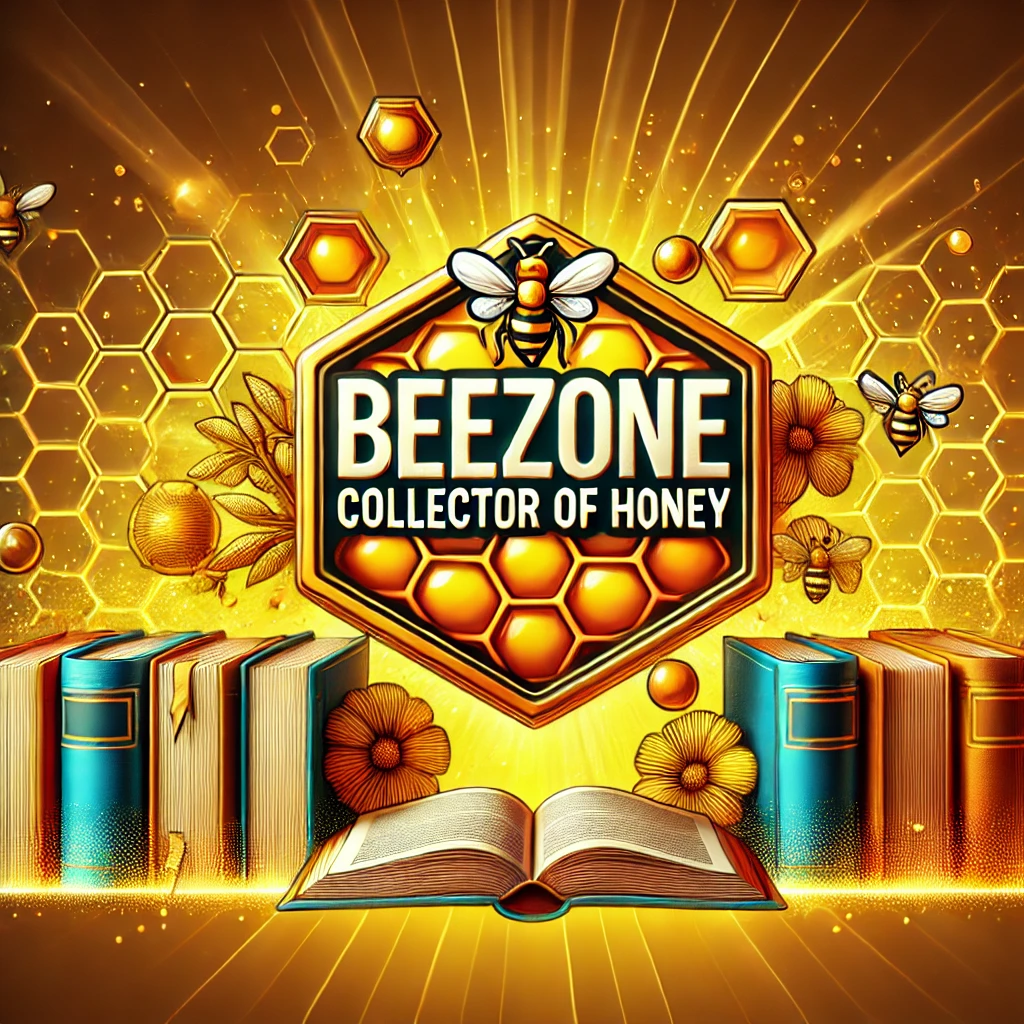
Collectors of Honey: Wisdom and Preservation in the Digital Age
Throughout human history, wisdom has been likened to many things—light, treasure, a guide, and, more fittingly, honey. Just as honey is painstakingly collected and preserved by bees, wisdom too has often been gathered and safeguarded by those who sense its value beyond the present. Honey represents the essence of knowledge, extracted from the richness of human experience and cultivated with the hope that it will nourish generations to come. This metaphor resonates deeply with the mission of Ed Reither’s Beezone Library, a digital repository designed to house precious teachings and guide seekers in today’s era.
The term “honey” as a metaphor for wisdom has roots in various ancient traditions that regarded knowledge as a sacred inheritance to be carefully guarded. Just as bees store honey to sustain their hive, these traditions strove to preserve their teachings to ensure survival through challenging times. In the Tibetan Buddhist tradition, terma (meaning “treasure”) represents wisdom hidden by great masters like Padmasambhava, who, anticipating periods of cultural decline, concealed teachings and artifacts to be rediscovered when society was ready for them. These teachings, known as termas, remain potent because they were not only preserved but hidden with purpose, waiting for those qualified to understand and unlock them.
Similarly, early Christians, especially Gnostic sects, hid sacred texts to protect them from persecution by orthodox authorities, who were wary of divergent interpretations. This need to protect and preserve wisdom echoes through the famous discovery of the Nag Hammadi Library in the Egyptian desert, where Gnostic texts like the Gospel of Thomas were unearthed in 1945. These texts, guarded from the literal-minded orthodoxy of their time, were hidden to ensure their insights could survive suppression and re-emerge in later ages when minds were more open.
In the Islamic world, certain esoteric groups, like Sufi orders, also protected sacred knowledge by encoding it in oral and symbolic forms. These teachings were shared only with those who demonstrated both respect and understanding, as they recognized that the true “honey” of their insights would remain potent only if protected from misunderstanding or desecration. Their discretion allowed knowledge to remain alive and passed down, even when authorities were hostile to unconventional wisdom.
Hermetic texts, attributed to Hermes Trismegistus, serve as another example of honey hidden within the layers of history. Hermetic teachings, blending Egyptian and Greek thought, were carefully encoded during the Greco-Roman period, especially when the Roman Empire’s stance against paganism grew intolerant. Rediscovered during the Renaissance, these works remind us that wisdom’s sweetness often requires both patience and context to be appreciated.
The Dead Sea Scrolls, hidden by the Essenes in caves near the Dead Sea, also encapsulate this practice. Concealed during a period of Roman persecution, these scrolls preserved not only some of the earliest Hebrew biblical texts but also unique insights from an ascetic Jewish sect. Their discovery in the 20th century reintroduced long-lost spiritual perspectives into our collective consciousness.
Today, Ed Reither’s Beezone Library continues this tradition of safeguarding wisdom for future generations, acting as a digital beehive for seekers in the modern age. The internet, both a powerful tool for access and a potential swamp of misinformation, requires collectors who, like ancient scribes and mystics, carefully curate and protect valuable knowledge. Beezone serves as such a place, gathering teachings from Eastern and Western traditions and preserving them with the intention that they might nourish the minds and spirits of those who come seeking.
In the digital era, the work of collecting wisdom is not merely about storage but about contextualization, selection, and thoughtful presentation. Just as a beekeeper knows the conditions and nourishment needed for a productive hive, Ed Reither has taken on the role of “scribe” for Beezone, filtering insights from disparate traditions to ensure that the honey of these teachings retains its potency and purpose. His work in Beezone enables individuals to taste the sweetness of these carefully preserved insights, bridging cultural and temporal divides in a space designed for study and reflection.
This digital preservation resonates with the spirit of terma in Tibetan Buddhism and the wisdom-protection practices of ancient traditions. In a world flooded with information, Beezone Library stands as a quiet refuge, a place for those who wish to deepen their understanding and savor the honey of ancient knowledge with the respect it demands.
In essence, “Collectors of Honey” represents not only the preservation of wisdom but its careful cultivation for future generations. Ed Reither and Beezone carry forward a timeless task—to ensure that the sweetness of wisdom, gathered from the flowers of human experience, remains accessible to nourish minds and hearts for years to come.